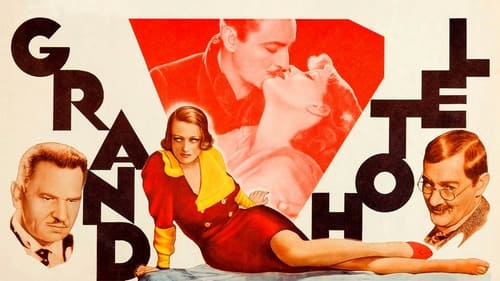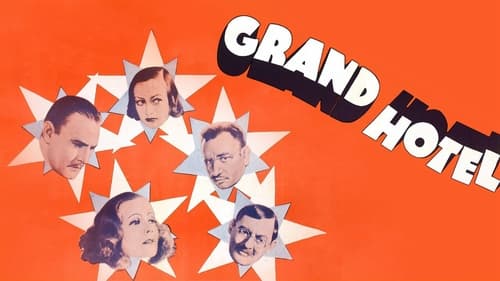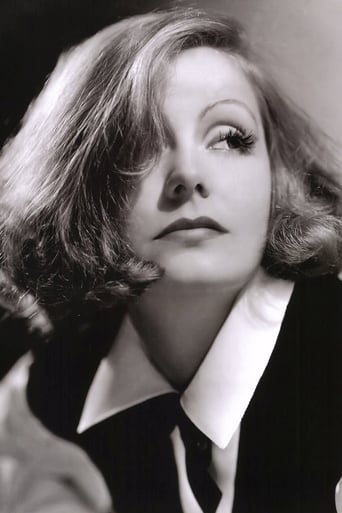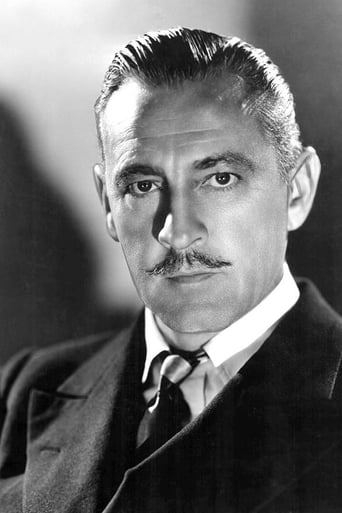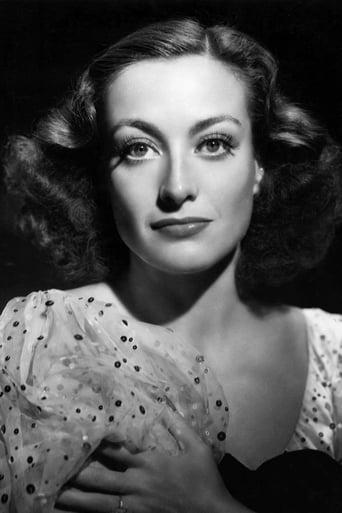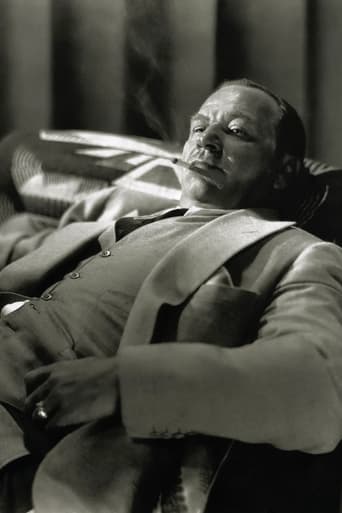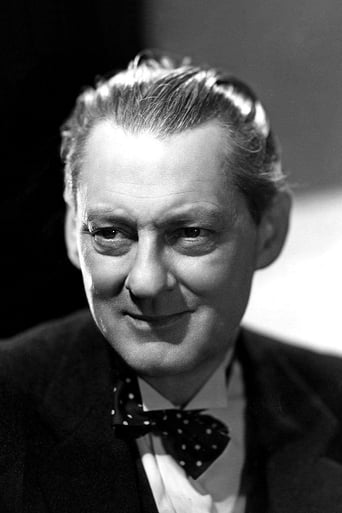Hellen
I like the storyline of this show,it attract me so much
Unlimitedia
Sick Product of a Sick System
Zandra
The movie turns out to be a little better than the average. Starting from a romantic formula often seen in the cinema, it ends in the most predictable (and somewhat bland) way.
Raymond Sierra
The film may be flawed, but its message is not.
Raoul Pifkey III
What more could you want? A list of great actors and great writing. I think this film was way ahead of its time. This film holds up to today's movies easily.I am reminded of Grand Budapest Hotel. Although this movie is not a satire or comedic as that film was, it has the scope and grandeur of the latter film. It refers openly to, in effect, prostitution for money in order to get a job (sounds familiar), a carefree but sad Baron (Is he really a baron?) who is broke, and charms the ladies into falling in love with him (they can't help themselves and neither can he), and a dying and lowly accountant who works for a brutish boss, and is finding true happiness finally at this late time in his life. (Joan Crawford, John Barrymore, and Lionel Barrymore)These characters and more have a tragic side which is mostly not obvious. All are flawed, and helplessly so. Money plays a central part in this movie. It shows how it can control people's lives and their choices. For example, a good and decent man, the accountant, living a miserable and unhappy life. He has been dealt a bad hand and now he is dying. Perhaps his own choices and lack of courage has controlled his life, but in the process of dying, he finds the courage to face his demons. Would we all find that a freeing aspect, though of course none of us wants his terminal illness. These actors did a great job with their roles, and there are more than I mention here. So this is a great movie, a great character study, and I don't know why I didn't give it a 10.
George Wright
When I watched this movie set in Berlin in 1932, I immediately thought of the previous war and the coming war and the depression the world was going through. Certainly there are references to the events of the day but mostly, this movie is a set of stories about a group of people together at a particular point in time. The idea goes back to the Canterbury Tales and is reflected again in classics like John Steinbeck's Wayward Bus. In the cinema, we also see it in the movie Ship of Fools directed by Stanley Kramer. The stories here are generally sad, with conflicted characters in search of love, money, power or in one case, a onetime fling with happiness before death. The movie has a superb script and a cast of characters played by some of the great actors of the time: two of the Barrymores, Lionel and John, Greta Garbo, Wallace Beery, Joan Crawford, Lewis Stone. The overhead shots of the circular balcony levels in the interior of the building are stunning. The characters are a commentary on human society. A luxury hotel with impeccable service does not mean everyone inside is content, much less living in the lap of happiness. I couldn't take my eyes away from this two hour long movie with its various vignettes. It was riveting but I could also imagine myself out for an evening's entertainment in my best attire just like an audience in1932; 85 years later, the movie is still great viewing.
grantss
The 1932 Best Picture Oscar winner hasn't aged well. Stuffy, snooty, aloof, with some pretty hammy acting. Slow moving. The first 80% of the movie felt like Act 1, the set up. Then, when things do start to happen, it is over very quickly, and then onto the conclusion. Pacing is horrendously bad.The characters were hardly likable. In fact, the only one I cared about was Joan Crawford's character, the stenographer. Maybe because she was the only real, down-to-earth one of all of them. Everyone else just seemed stuck up, scheming or nuts.The likability of the stenographer is largely due to Joan Crawford's performance. She is fantastic - bubbly, witty and beautiful. None of the remainder of the cast worked for me. Greta Garbo, John Barrymore and Lionel Barrymore all seemed like they were auditioning for a play - very overdone, overacted performances. Admittedly, this was the early days of talking movies, so maybe old, silent movie, habits died hard. Certainly makes me wonder what all the fuss about Greta Garbo was, at least.
The_Film_Cricket
Without a good story to tell, Grand Hotel might be just an overwrought gathering of some of the greatest stars in the early days of Hollywood, a kind of revue of great faces without any real purpose. Yet, because this there is multiple stories, multiple characters, multiple points of interest, the movie is infinitely watchable, even today. What we get is a movable soap opera that surprisingly hasn't dated, and that may have something to do with the fact that the cast features actors who are given good material.Based on a mostly forgotten play "Menschen im Hotel" by William A. Drake from the book by Vicki Baum (who wrote the book based on her own experiences working in a hotel), Grand Hotel tells a multi-tiered story about the various goings-on at a swank Berlin hotel. The disfigured World War I veteran and permanent resident Dr. Otternschlag (Lewis Stone) describes it as "People come and go. Nothing ever happens." Actually, he's being ironic. There's plenty going on, and as the patrons gather we meet them and get involved in their various stories.We meet a Baron, Felix von Geigern (John Barrymore), once a millionaire who has now squandered his fortune and makes a living by day as a card player and at night as a jewel thief. He befriends a sickly former accountant Otto Kringelein (Lionel Barrymore) who believes he is dying and is spending his last days at the hotel.We meet an industrialist called Preysing (Wallace Beery) who is about to close a sink-or-swim business deal that, if unsuccessful, could ruin him and his family. He hires a beautiful stenographer and aspiring actress named Flaemmchen (Joan Crawford) and during a conversation she suggests that she is willing to help him if he is willing to help her out of the typing pool.Then there is Grusinskaya (Greta Garbo) a Russian ballet dancer whose career is fading. Her station in life is taking its toll and she becomes depressed, stating "I want to be alone." One night the Baron is robbing her room when she returns from an engagement and he overhears her, thinking that she is considering suicide. He confronts her, she is startled, but as they talk, they fall in love. This union does not go where we expect.All of these stories interconnect in a way that is not only clever but really quite compelling. The characters act, basically, according to their nature and their stories don't go where we expect. The most interesting is Flaemmchen, a beautiful young woman who has a mind behind her looks. There is a suggestion that she is willing to bed down with Preysing to further her career but she's no mere floozy. She also falls a little bit in love after a slight flirtation with the Baron. This is a different Joan Crawford then we're use to, young and happy and flirtatious. Crawford's legacy has been tainted by her reputation as a bitch-on-wheels and tarnished by trash like Mommie Dearest, but here we see the young Crawford. She is confident, easy-going and easy to fall in love with.Also interesting is Kringelein whom we meet as a man who seems to be nothing less than a self-pitying hypochondriac, but whose association with the Baron fuels his last days on earth with a profound sense of joy. He has an associated with Preysing. He was once under his employ and we discover, in a stunning moment, just what a rat his former employer was. This is a very dialogue driven picture taking place within confined spaces. The hotel itself is tall and circular and somewhat confined by the scope of what the camera is able to capture. Many of the rooms are lit at low levels so as to suggest the dark secrets hiding in the shadows. What is amazing is that none of this seems dry or dated. Everyone has a story to tell, and all seem to have a story that began before the camera found them.That's the true test of good writing. This could easily have been a tapestry of movie stars with nothing to do, but it's much more compelling than that. Many may see it as dated but I see a movie that peeks into a time gone by, with stars long gone. It is a timestamp on a world and on attitudes that we are never likely to see again.***1/2 (of four)


